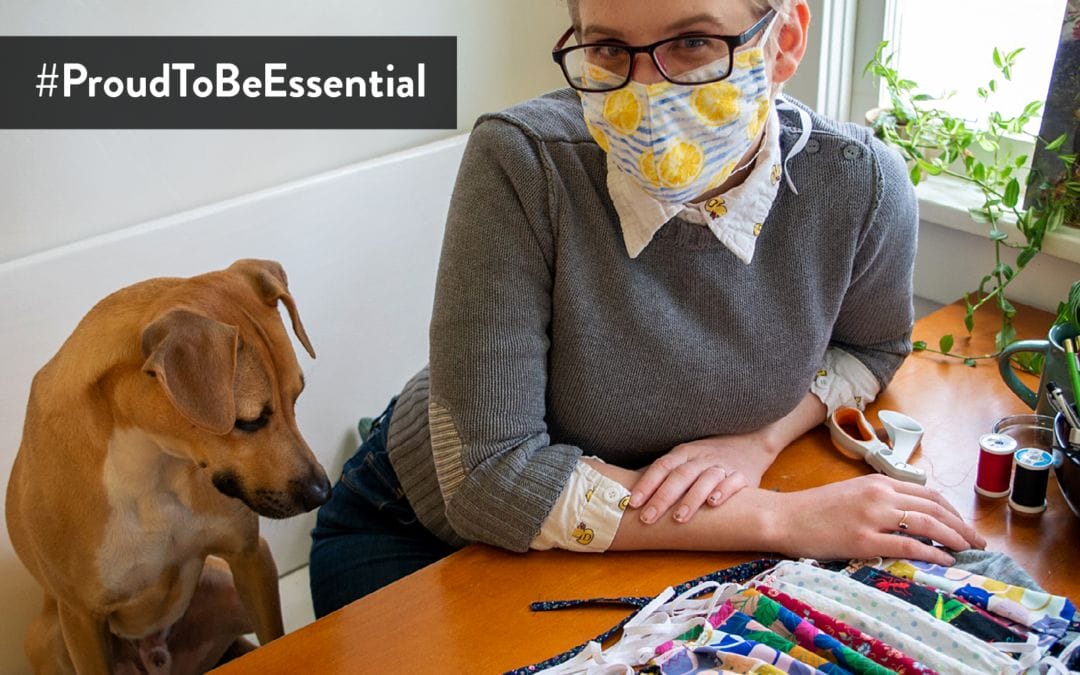Kendall King, R.N., and her colleagues who work in Albertina Kerr’s Crisis Psychiatric Care (Subacute) facility for children and teens are battling COVID-19 in a very different way than the average hospital worker. “Right now, the incidence of suicide and domestic violence are rising,” she states. “It’s so important we have a place like Kerr’s Subacute where kids and families can go when they are in crisis.”
Whether it’s the loss of their school routine, exposure to ongoing tension in their family, or fear of losing a loved one, especially if they live with their grandparents, the need for Kerr’s Subacute to remain open through this time is vital for many children and teens. “A lot of kids are suffering through the pandemic,” King says. “We see children and teens facing emotionally challenging situations from suicidal ideation and depression to sexual and domestic abuse. We are definitely needed right now and it’s paramount we stay open.”
King first began closely monitoring the news of the COVID-19 pandemic in early February. This prompted her to research preventive measures to ensure the virus didn’t spread among her coworkers and clients. She concluded it was crucial for Kerr staff to have access to an ample supply of face masks.
“I started making face masks in early March,” she says. Her initial goal was to make 50 face masks—one for each of her colleagues who work in the facility. Each day, King would make four to 12 face masks before heading into work. “People were pretty excited to have them,” she says. “When I started bringing them in, the guideline was you only need a mask if you’re sick.”
King learned from her research that wearing a face mask incorrectly can actually do more harm than good. And, if you don’t wash your mask between uses, then you are just putting a germ filled cloth back over your face. “The first week I was giving out these masks, I made a little drawing of dos and don’ts,” she recalls. “It’s also important to make sure the face mask fits securely around your mouth and nose, so you’re not feeling air leak around the sides or at the top.”
Now, many of the kids who are admitted to Kerr’s Crisis Psychiatric Care are coming in with face masks. “They know what’s going on,” she says. “But, the face masks make counseling very difficult for kids who rely on facial expressions,” she says. “To sit down and try to have an in-depth, face-to-face conversation about a difficult topic, when you can’t see someone’s face, is uncomfortable.” There are also challenges with kids who are deaf because sign language incorporates mouth expressions to convey the tone of what is being said.
These challenges are just small hurdles for King, who enjoys being part of the solution. One way to help kids who need to see nonverbal expression is to take the conversation outside. “If you’re sitting outside six feet apart, you can get away with not wearing a face mask, since there are more air currents.”
She has also made her coworkers aware that they may need to speak louder and concentrate on their diction more, since voices can sound muffled when wearing a face mask. Also, because King wears glasses she made sure all her face masks included a wire metal piece to prevent them from fogging up.
“I really want to make sure the people I work with are safe so we can help these kids,” King says.

